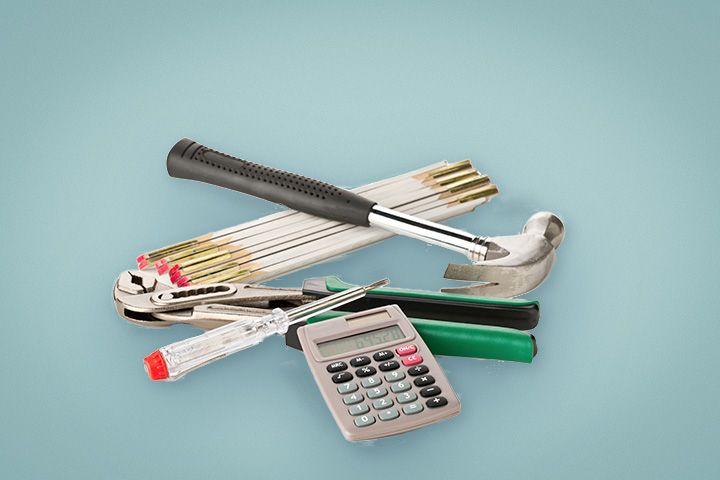Don't forget to make arrangements for your digital estate

Keytrade Bank
keytradebank.be
July 05, 2023
(updated July 10, 2023)
5 minutes to read
From pursuing social interactions to capturing valuable memories, we store more and more of our experiences and day-to-day relationships digitally. This raises an important question: what happens to that digital footprint or digital estate if we are suddenly no longer here? Even though this may not be the most uplifting subject to think about, it is necessary to plan this in advance.
Why plan your digital estate?
- Just like a plan for your physical assets, investments or savings, digital estate planning is also very useful. Although most digital assets have little economic value, they can have significant emotional value for your next of kin. They may include countless photos stored on social media, in the cloud, on your smartphone and on your computer, and your correspondence about valuable memories.
- Not planning your digital estate can cause practical problems. Important documents may become inaccessible if no one knows your passwords, and abandoned social media accounts may evoke painful emotions – almost as though you live on as a digital zombie – or even become susceptible to hacking.
- Finally, not making any arrangements may also result in a privacy issue. The right to privacy and correspondence confidentiality cease to exist in the event of your death. This means your heirs can read your emails and messages, even if you don't want them to. Sometimes it is desirable to have certain items accessible still after your death, but you may want other items to be deleted immediately.
How to get started
To plan your digital estate, start by making an inventory of all your digital assets and activities. Your online and offline digital estate may include social media accounts, email accounts, login credentials for commercial accounts (shops, telecoms, utilities), contact lists, photo and video storage accounts, access codes for your smartphone, computer or other devices, digital collections (such as NFTs), blogs or domain names you manage, cryptocurrency, text, graphics and audio files (or other intellectual property) on your computer, your external hard drive, and so on. You can indicate what needs to be done with this data when you are no longer here. Do you want your blog to disappear, for example, or would you like it to stay online? What happens to your digital assets that have monetary value or generate income, such as a website or web store? Interesting fact: some platforms will automatically close accounts after a long period of inactivity or notification of a death. Some platforms allow you to indicate what you want to happen to your data in the event of your death or long-term inactivity. The policies can be very different. It is a good idea to familiarise yourself with these policies and to set your preferences where possible.
An overview of options for some popular services:
Where do I store all this information?
Keep your overview in a safe place at home and/or in the cloud. A practical way is to use a digital safe. You store all your passwords and instructions for your next of kin in this safe. You then appoint a confidential adviser. After your death or after a certain period of inactivity, your confidential adviser will receive a message that gives them access to the safe and/or an overview of your last wishes and the necessary access codes. You can also use the safe as a password manager on a daily basis and set it so all content is deleted after your death or long period of inactivity. Many companies currently offer such services, and Belgian notaries have also developed a free digital safe (Izimi). The advantage of this safe is that it allows you to share uploaded documents and data securely with your loved ones. You may also wish to indicate in advance what documents are to be transferred to your heirs after your death via your notary. You can also choose to have all content destroyed after your death. Izimi is a non-commercial initiative, so it is free of charge without any advertising. The most important thing is that you choose a safe solution and plan everything carefully. Storing passwords and other sensitive information may involve risks, particularly if they fall into the wrong hands. The most secure safes are encrypted with two-factor authentication. Alternatively, you can make your wishes known in a will. You can then add a document to the will with an overview of your accounts and your instructions. If you wish, you can also designate an executor who will manage (or delete) your digital estate after your death.
How do I make sure my next of kin find my list and respect my wishes?
It is important to inform someone you trust about the existence of your digital inventory and where it can be found. If you are using a digital safe, you can set up a notification to be sent to this person in the event of long-term inactivity or death. This message may contain instructions on how to access the safe and what to do with the contents. Choose this person carefully. This person should be someone you fully trust to deal with your digital estate responsibly.
If your will includes an inventory, the person whom you or the court designated to execute your will (an executor) will have access to this information. It is also a good idea to involve your notary or another wealth expert, particularly if your digital estate has a high emotional or financial value. They can help you to ensure your wishes are correctly documented and granted.


